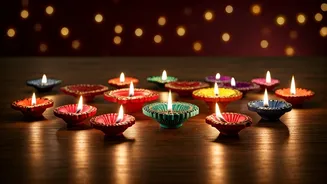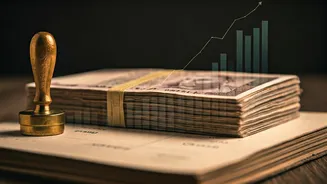Diwali's Official Date
The exact date of Diwali varies each year based on the lunar calendar, making it essential to confirm the precise date. For 2025, there is some uncertainty
regarding the date, with discussions pointing to either October 20th or 21st. It's crucial to consult a reliable calendar or Hindu religious authority for an official announcement closer to the date, which will provide a definitive answer for the celebration. The festival's placement on the calendar reflects the importance of precision due to the religious practices and community gatherings associated with it. Families and communities organize their festivities, which include preparations such as cleaning homes, decorating with lights, and planning for the various rituals.
Diwali Wishes Shared
The essence of Diwali is sharing joy and strengthening relationships; this is achieved by exchanging heartfelt wishes. These greetings reflect the spirit of the occasion. People use different platforms to send wishes, including traditional cards, text messages, and social media posts, each method enabling them to extend warmth and good wishes. Traditional Diwali greetings often include phrases invoking prosperity, good health, and success for the recipient and their family. People also send personalized messages to convey their feelings and strengthen bonds, creating lasting memories.
Diwali Greetings Expressed
Greetings for Diwali often go beyond simple wishes; they reflect a deeper cultural context and can incorporate artistic elements and traditional symbols. The greetings might include the use of diyas (oil lamps), rangoli designs, or images of deities to enhance the festive spirit. Many businesses also create greetings to thank customers and employees. This practice highlights the significance of Diwali and strengthens the link between business and community. The design and style of Diwali greetings also mirror modern trends, with digital platforms and social media providing new opportunities for creative expressions. These greetings serve as reminders of cultural values and provide avenues to share positivity.
Celebratory Preparations Planned
Diwali's festive atmosphere inspires preparations that start weeks or even months before the festival itself. These preparations are designed to welcome the goddess Lakshmi, the goddess of wealth and prosperity, and they often include cleaning and decorating homes. People buy new clothes, which are worn during the celebrations. Traditional sweets and savories are prepared and shared with family and friends. Gifts are exchanged, often symbolizing good fortune and prosperity. These preparations also include cultural and religious rituals, such as performing puja, lighting diyas, and setting off fireworks, which contribute to the festival's unique atmosphere and provide an opportunity for community and familial bonding.
Cultural Significance Explored
Diwali has deep roots in Indian culture, representing the triumph of good over evil, light over darkness, and knowledge over ignorance. The festival is related to different stories and beliefs, which reflect its varied celebrations across various regions. For example, some celebrate the return of Lord Rama to Ayodhya after his exile, while others honor the goddess Lakshmi. These stories influence how people celebrate Diwali, including the specific rituals, foods, and decorations. The cultural significance is apparent in the way communities come together to celebrate, transcending differences to foster unity and strengthen cultural heritage. Diwali's widespread celebrations underscore its importance as a symbol of unity, prosperity, and the eternal triumph of good over evil, keeping traditions alive for future generations.













